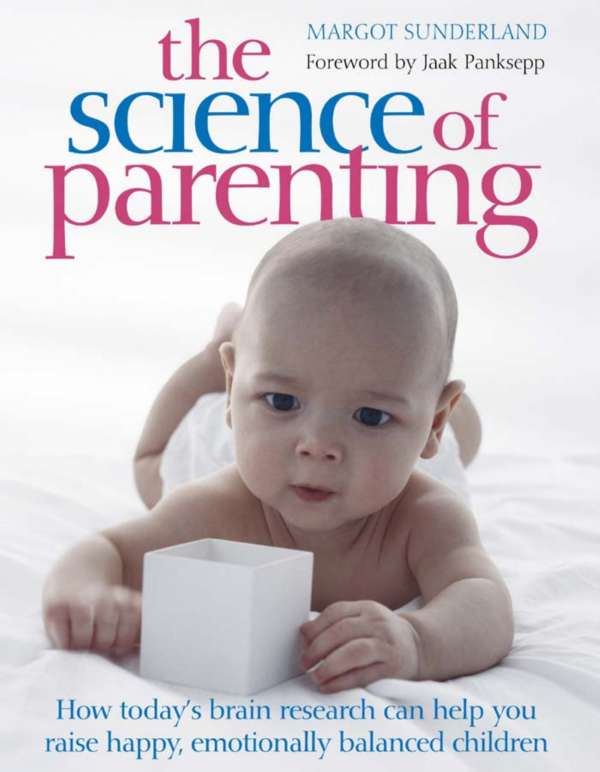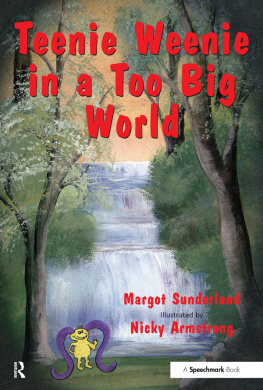Margot Sunderland - The Science of Parenting
Here you can read online Margot Sunderland - The Science of Parenting full text of the book (entire story) in english for free. Download pdf and epub, get meaning, cover and reviews about this ebook. year: 0, genre: Children. Description of the work, (preface) as well as reviews are available. Best literature library LitArk.com created for fans of good reading and offers a wide selection of genres:
Romance novel
Science fiction
Adventure
Detective
Science
History
Home and family
Prose
Art
Politics
Computer
Non-fiction
Religion
Business
Children
Humor
Choose a favorite category and find really read worthwhile books. Enjoy immersion in the world of imagination, feel the emotions of the characters or learn something new for yourself, make an fascinating discovery.

- Book:The Science of Parenting
- Author:
- Genre:
- Year:0
- Rating:3 / 5
- Favourites:Add to favourites
- Your mark:
- 60
- 1
- 2
- 3
- 4
- 5
The Science of Parenting: summary, description and annotation
We offer to read an annotation, description, summary or preface (depends on what the author of the book "The Science of Parenting" wrote himself). If you haven't found the necessary information about the book — write in the comments, we will try to find it.
The Science of Parenting — read online for free the complete book (whole text) full work
Below is the text of the book, divided by pages. System saving the place of the last page read, allows you to conveniently read the book "The Science of Parenting" online for free, without having to search again every time where you left off. Put a bookmark, and you can go to the page where you finished reading at any time.
Font size:
Interval:
Bookmark:



LONDON, NEW YORK, MUNICH, MELBOURNE, DELHI
US Senior editor Jill Hamilton US editor Christine Heilman Senior editor Esther Ripley Senior art editor Anne Eisher Project editors Becky Alexander, Ann Baggaley, Kesta Desmond Designer Jo Grey DTP designer Sonia Charbonnier Production controller Elizabeth Cherry Managing editor Penny Warren Managing art editor Marianne Markham Picture research Myriam Megharbi Jacket editor Adam Powley Publishing director Corinne Roberts
The views expressed in this book are the authors own. If you have any concerns about any aspect of your childs behavior, health, or well-being, it is recommended that you seek professional advice. Neither the author nor the publisher shall be liable or responsible for any loss or damage allegedly arising from any information or suggestion in this book.
First published in the United States by DK Publishing Inc.
375 Hudson Street, New York, NY10014 Penguin Group (US)
Copyright 2006 DK Publishing Inc Text copyright Margot Sunderland 2006
2468 10 9753 1
All rights reserved under International and Pan-American Copyright conventions. No part of this publication may be reproduced, stored in a retrieval system, or transmitted in any form, or by any means, electronic, mechanical, photocopying, recording, or otherwise without the prior written permission of the copyright owners.
DK Publishing offer special discounts for bulk purchases for sales promotions or premiums. For more information, contact Special Markets Department,
DK Publishing Inc., 375 Hudson Street, New York, NY 10014, Fax 212-689-5254.
A Cataloging-in-Publication record for this book is available from the Library of Congress.
ISBN-0-7566-1880-0
ISBN-978-0-7566-1880-3
Reproduced by Media Development Printing,
Great Britain
Printed and bound by Star Standard, Singapore Discover more at
www.dk.com
Contents

Forewords 6 Introduction 8
Your childs brain 14 Crying and separations 34 Sleep and bedtimes 64 The chemistry of living life well Behaving badly 110
The trying times 134 All about discipline 158 The chemistry of love 182 Your socially intelligent child 216 Looking after you 244
References 270 Useful addresses 281 Index 282

6 THE SCIENCE OF PARENTING
Forewords

"If we act upon what science can tell us about parenting, we can develop more benign societies."
There was a moment of shock when I first realized how much impact the everyday interactions between parent and child can have on a childs developing brain. Yet the mass of scientific research on this subject was not getting through to parents or to the public arena. This is what fueled my passion to write a book that would not be just one more opinion on parenting (we have quite enough of these already), but would rather empower parents to make informed choices for their children based on what we can learn from these scientific studies.
This book would not have been written without the groundbreaking research of Professor Jaak Panksepp, who has been studying the emotional brain in the US for more than 30 years. His findings are not only significant within the world of neuroscience but also have major implications for humankind. His work, and that of others, explains why so many children grow up to be adults who suffer from depression, anxiety, or problems with anger.
If we are prepared to act upon what science can tell us about parenting, we can push forward to develop more benign societies with greater compassion, capacity to reflect, and respect for difference. Perhaps, too, society will begin to see that by nurturing parents, children wiU be empowered to thrive.
Margot Sunderland
Director of Education and Training, Centre for Child Mental Health, London.
FOREWORDS 7
This superb manual for child rearing describes how healthy minds emerge from emotionally well-fertilized brains. The quality of childcare has lifelong consequences for mental health. Children whose emotional feelings are cherished and respected, even their angry outbursts, shall live more happily than those whose early passions are denied. Both excessive distress and tender loving care leave lasting marks on the emotional circuits, and mentalities, of developing brains.
Modern brain research has clarified how neural structures and chemistries elaborate emotionality in our fellow animals. As a result, we can better understand the nature of social emotional urges within our childrens brains. Margot has harvested and digested this abundant evidence and brilliantly highlights how this knowledge can guide better parental choices for childrens lives.
The first three years of seeking and affectively engaging the world are critical for the future success of every boy and girl. It is important for them to get off on the right track both emotionally and intellectually. With The Science of Parenting, Margot Sunderland has given us a scientifically secure base for child-rearing practices in the 21st century.

"Here we have a scientifically secure base for child-rearing practices in the 21st century."
Jaak Panksepp, Ph.D.
Baily Endowed Chair of Animal Well-Being Science,
Washington State University; Head of Affective Neuroscience Research, The Falk Centre for Molecular Therapeutics, Northwestern University.
8 THE SCIENCE OF PARENTING
Introduction

What a gift to be given life. What an awesome thing that you didnt end up as one of the millions of sperm that didnt make it, or one of the eggs flushed down the toilet. And on top of that, how incredible if you have been lucky enough to be born in a country not at war, or scared by persistent violence, so that you dont have to live in fear. Yet despite all this, for many people there is a BUT. What if you didnt have the sort of parenting that enabled you to develop the capacity to live life to the full? What if, because of this, you have been troubled by depression, or persistent states of anger or anxiety? What if you never feel truly calm or able to find real generosity, kindness, or compassion in your heart, or have the drive, motivation, or spontaneity to do what you really want with your life? What if you never know what it is to love in peace?
For centuries we have been using child-rearing techniques without awareness of the possible long-term effects, because until now we simply could not see the effects of our actions on a childs developing brain. But with the advances of neuroscience, brain scans, and years of research on the brains of primates and other mammals, we no longer have the innocence of ignorance. For several years, science has been
Font size:
Interval:
Bookmark:
Similar books «The Science of Parenting»
Look at similar books to The Science of Parenting. We have selected literature similar in name and meaning in the hope of providing readers with more options to find new, interesting, not yet read works.
Discussion, reviews of the book The Science of Parenting and just readers' own opinions. Leave your comments, write what you think about the work, its meaning or the main characters. Specify what exactly you liked and what you didn't like, and why you think so.








